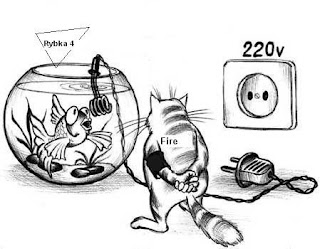I too agree the verdict was rather harsh (other panel members had suggested lighter penalties, though in any event the Panel would not be involved in such matters). To quote Levy (from the verdict):
The ICGA regards Vasik Rajlich’s violation of the abovementioned rule as the most serious offence that a chess programmer and ICGA member can commit with respect to his peers and to the ICGA. During the course of the investigation and upon presentation of the Secretariat’s report Vasik Rajlich did not offer, despite repeated invitations from the ICGA to do so, any kind of defence to the allegations, or to the evidence, or to the Secretariat’s report, other than to claim in an e-mail to myself [...] When a person doesn't (or is unwilling) to respond to quite detailed allegations about "the most serious offence" that can be committed, it is hard to muster up much sympathy in his defence. To wit:
why should I care about what the ICGA does to him, when he himself seems rather ambivalent about it all?
I think what swayed the Executive Board was the general lack of communication and/or respect from Rajlich regarding the whole issue [E.g., regarding a previous comment, it shouldn't be the
ICGA that has to waste its time to ascertain out what Rybka version (likely) played in what event, when Rajlich could answer the question rather easily -- but even such basic data-points seem not to have been addressed by him]. From what I could tell (and the Panel was mostly out of the loop for the last 2 months, with only a brief about the Levy-Rajlich emails), it seems that Rajlich didn't spend more than maybe 15 minutes of his time to address the questions and evidence --- when contrasted to the hundreds of hours spent by myself, Zach, and others to accumulate the evidence [not to mention even the 5-10 hours per Panel member needed just to read, digest, and comment on it], his one-sentence response [that Rybka in his view was not "derived from game-playing code written by others"] was essentially construed as a non-defence (or alternatively, almost a challenge as to whether the ICGA was competent to interpret its own rules [cf. in this regard my comment below about the ICGA being more vigilant in requiring more complete descriptions, in which case the question of rule-interpretation could become almost moot]).
If Rajlich had been more communicative, my guess is that there would have been more prospect for a "deal" being worked out with which Fruit could be considered a joint winner for 2007, etc. [viewing the 2008-10 entries as only being "minor" violations, akin to filling out the entry form incompletely]. But I surmise that the Board concluded that it really had no other option [a few months back, I had suggested privately to Mark Lefler that if the proceedings were
de facto to be
in absentia (not to mention
ex post facto), one option would be to first make a declaration, with an ultimatum that if the situation was not addressed by Rajlich by the next WCCC, then more substantial action would be taken -- but I can certainly appreciate that Levy and the Board did not want things to drag on, and so opted for finality at this stage].
The most productive thing I can say at this time (I mentioned the same in a recent email to Fabien) is that I would suggest that the ICGA to be much more vigilant in requiring adequate "descriptions" of entries [as was more typical prior to the last decade]. No more one-line "X is a program to play Y that I wrote in my free time over the last Z years, combining well-known techniques with some of my own ideas" [well, actually, that's more complete than some I've seen], but (to use what I could expect for Rybka in 2006):
Rybka is a chess engine I have been working on since 2003. It originally started as a bitboard MTD(f) salvaged (and then refitted) from some Crafty parts, but I switched to PVS last year. Fruit 2.1 had a big influence too, and after it appeared I largely rewrote my evaluation function and tuned its "minimalist" feature set. [Fruit also helped me clean up my UCI parsing and time managment code]. Special aspects of Rybka include a "material-imbalance" table that I've been playing around with since the beginning, and some new ideas I've had about search involving pruning and LMR. Rybka went commercial in late 2005 in a single-cpu version, and much of my recent work has been to add parallel SMP capabilities.
I also must say that I don't necessarily agree with such things as "promoting" the 2nd-4th place finishers, but having a "vacated" title is no panacea either.
Well, onto the
Loop 2007 case...

